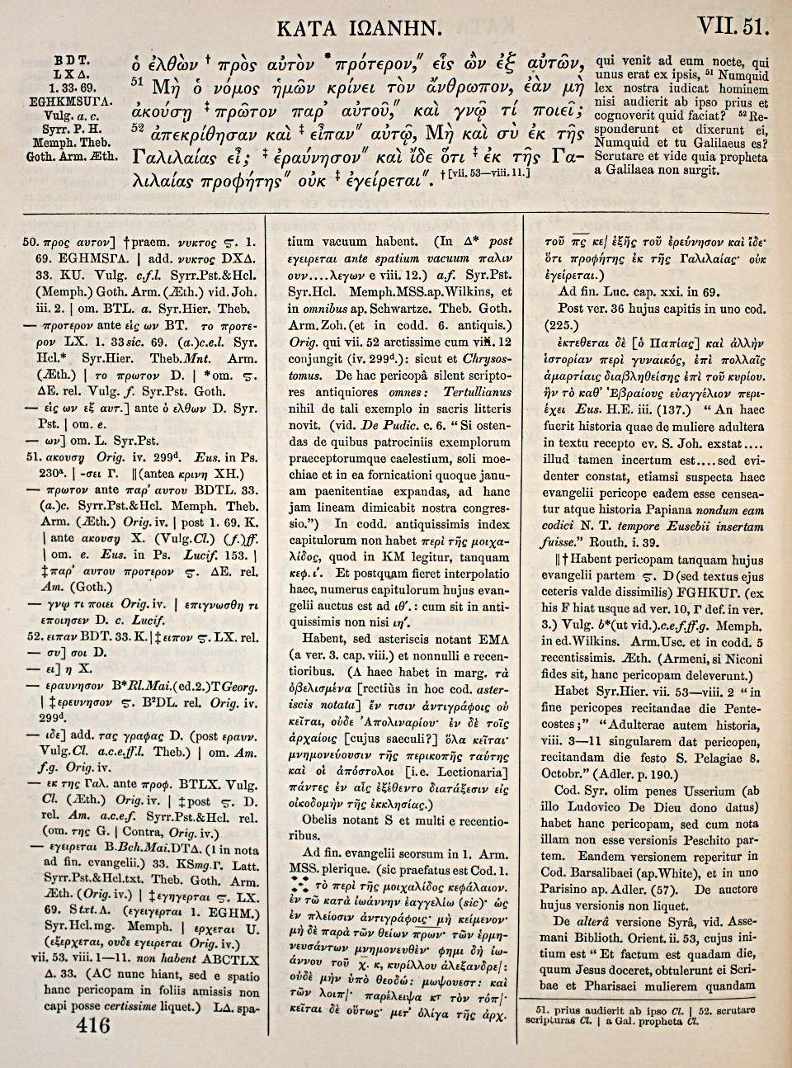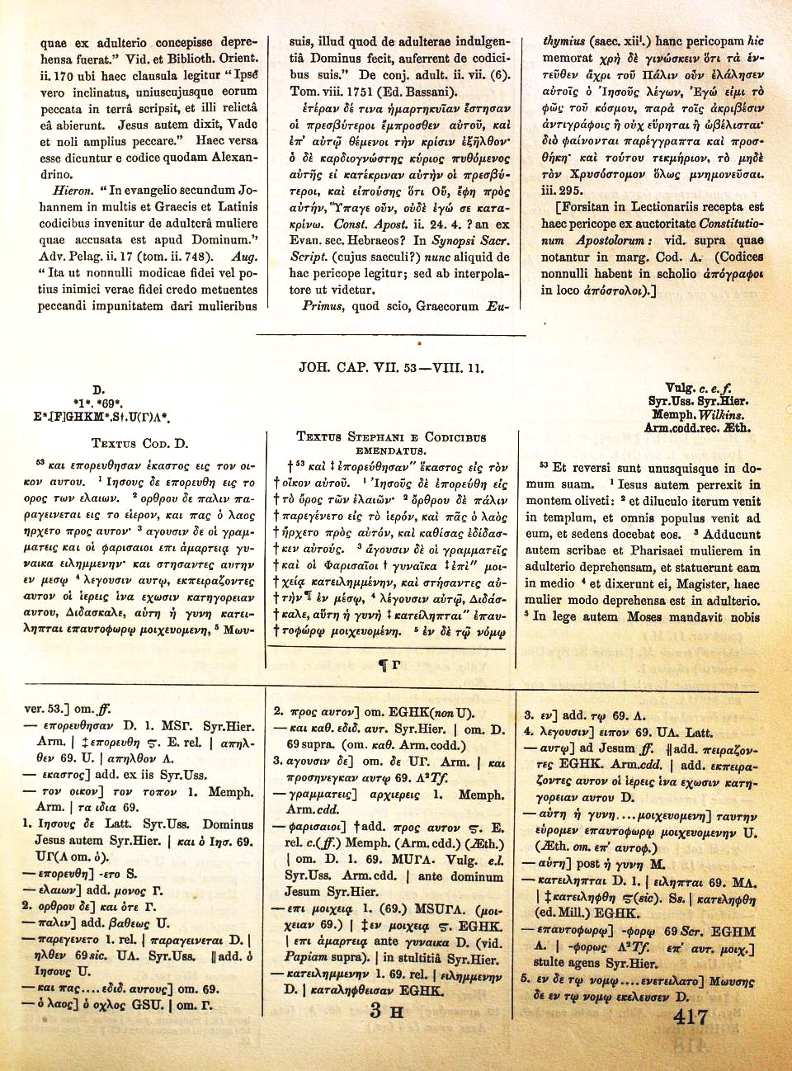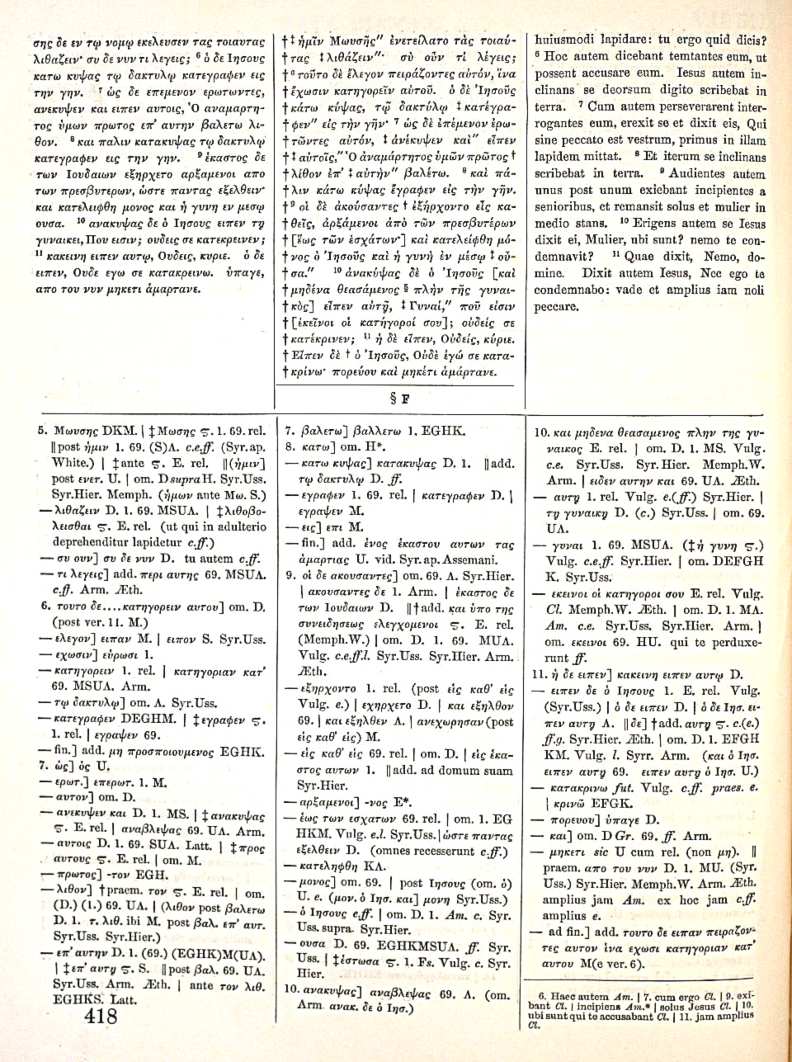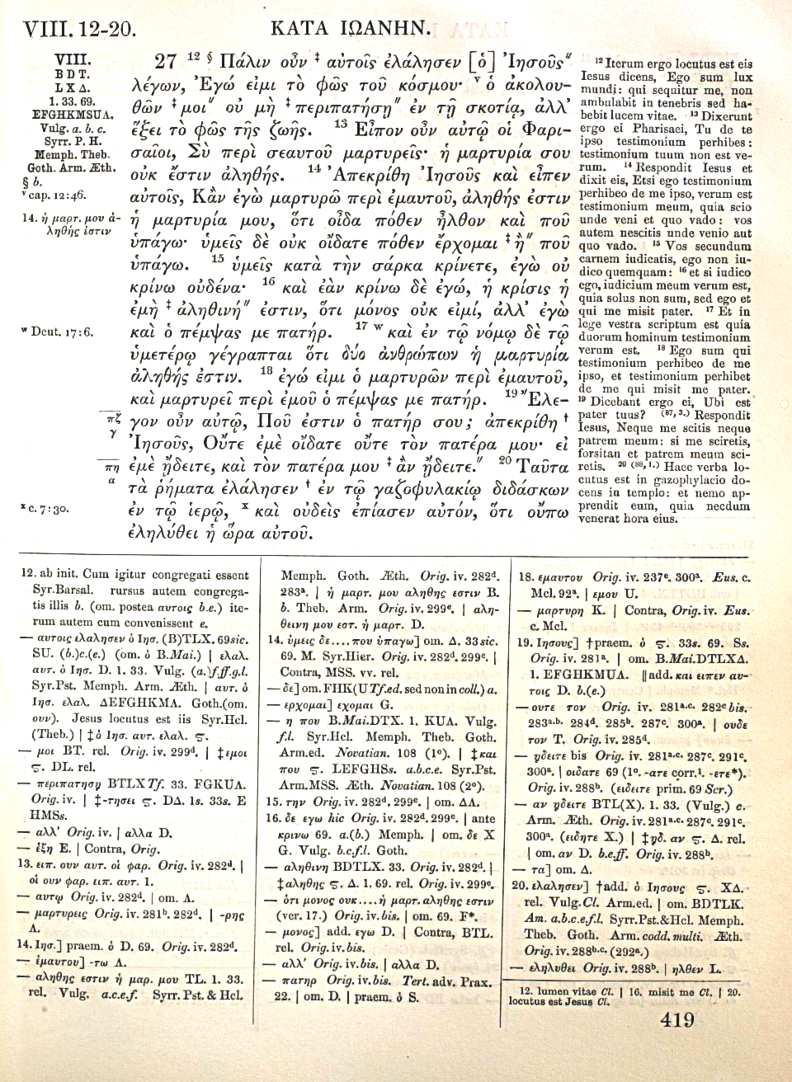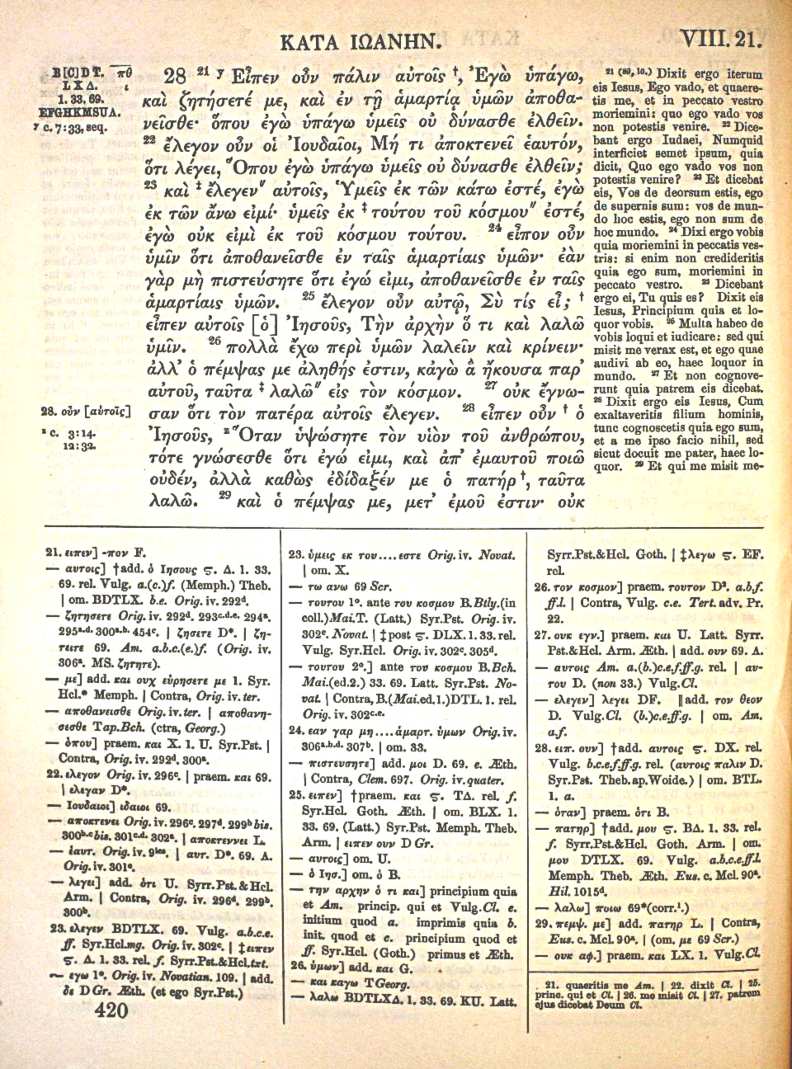Introduction to Tregelles from
the Tregelles Website:
It was in the first half of the 19th century that the first Greek New Testament was printed that was based not on the traditional Greek text, but on the testimony of the oldest manuscripts (Lachmann, 1831). In the decade after Lachmann, Tischendorf started his work of discovering and publishing new manuscripts and issuing a series of Greek New Testaments, culminating in the 8th edition, published 1869 to 1872.
At roughly the same time, Samuel Tregelles also started to work on the Greek New Testament. First of all, he produced a critical text of Revelation in 1844, with an English translation included. In this same time he was involved in the publication of Wigram's concordances of the Greek NT and the Hebrew OT, and had produced a translation of Gesenius's Hebrew and Chaldee Lexicon. He travelled widely throughout Europe to many of the major libraries, and transcribed or collated any manuscript he could lay his hands on. He published a history of the discipline of New Testament textual criticism (1854), and also an introduction to textual criticism in which he described the source materials (the manuscripts, the old translations of the New Testament from the Greek into other languages, the quotations of the New Testament in the early church fathers). Tregelles had now a firm idea of the method by which he proposed to come as close as possible to the original text (1856). It was only after all this preparatory work that he started to publish the text (from 1857).
Tregelles decided to publish his New Testament in fascicles and the first of these contained Matthew and Mark. The obvious benefit was that in this way it was possible to get something out in print early on, the disadvantage being that one ran the risk of being overtaken midway by fresh discoveries. This is exactly what happened. In the Introductory Notice to Part II, Luke and John, published in 1861, Tregelles has to write already about his intention to add a list of corrections containing the more precise information on Codex Vaticanus as published in the second edition of Mai's work on this manuscript in 1859 and from Codex Sinaiticus which was brought to St Petersburg by Tischendorf in the same year. That means, for the all important textual criticism of the four gospels, Tregelles did not have a precise collation of Codex Vaticanus (B) available, nor any text from Codex Sinaiticus (א). In the end, Tregelles himself never published this list but it was a long-time correspondent and supporter, F.J.A. Hort, who ensured a list with corrections and additions was published posthumously in 1879, together with an introduction to Tregelles's method drawn from his other publications. Tregelles was not in very good health during the last decade of his life. He added an apology for the delay of the appearance of Part III, Acts and Catholic Epistles (1865), and having suffered a second, major stroke in 1870 it is clear that, when Part VI, Revelation finally appears in 1872, the final editing of the Introductory Notice and of the text is no longer his.
Tregelles was a non-conformist Christian with a deep and sincere faith who held a high view of Scripture and fiercely opposed any trace of the liberal tendencies widely present in 19th century theology. At the same time he was all too aware of the unease a work on the textual criticism of the New Testament could produce among Christians in the church. His basic attitude is neatly summed up in the following statement:
'It is not for Christian scholars to fear true criticism or its results: the object of true criticism is not to alter scripture dogmatically on the judgment of any individual, but it is to use the EVIDENCE which has been transmitted to us, as to what the holy men of God, inspired by the Holy Ghost actually wrote. In this, as in any other Christian service, the blessing and guidance of God may be sought, by those who know the privileges resulting to the believing soul from the redemption of His Son'
(Tregelles's Greek New Testament: Introductory Notice, Part 1, ii).
Excerpted from: http://www.tyndalehouse.com/tregelles/page3.html
Text and Apparatus for
Pericope de Adultera
Some of the discussion is in Latin, the language of academics in the 19th century. If anyone wants to translate the apparatus into English, we will be happy to include it. Most abbreviations are in the standard of the time, including MSS letters/numbers.
